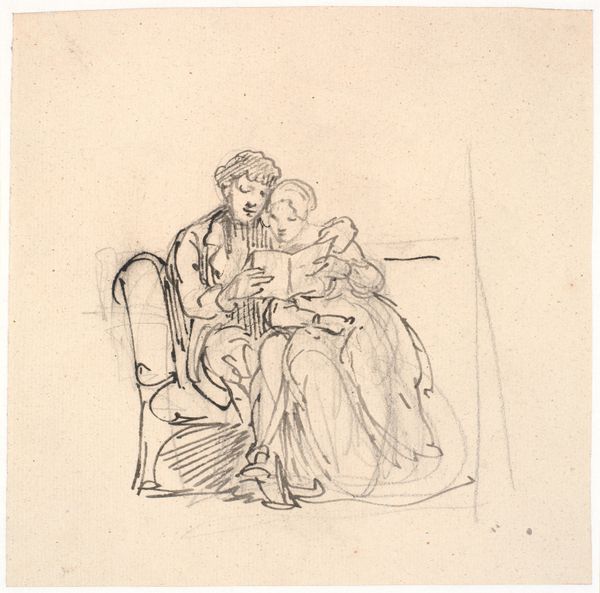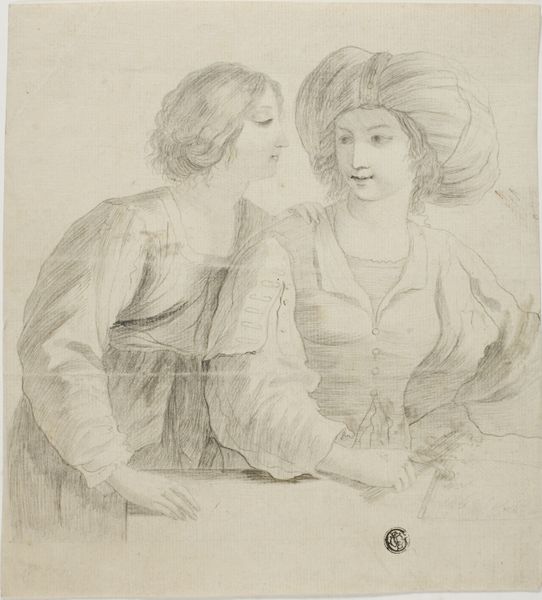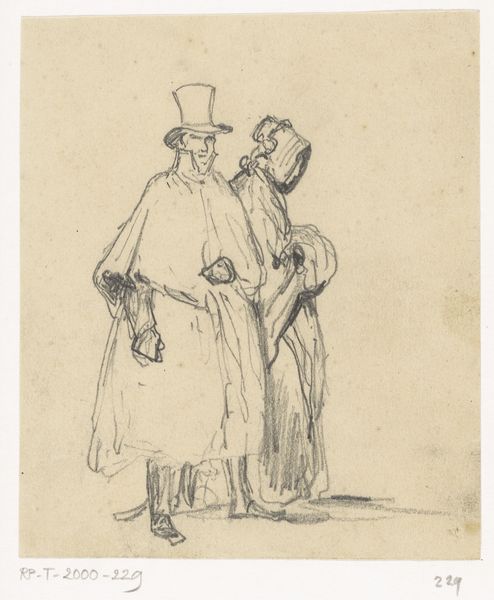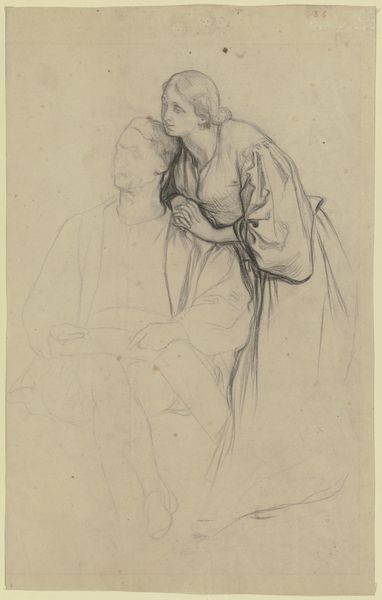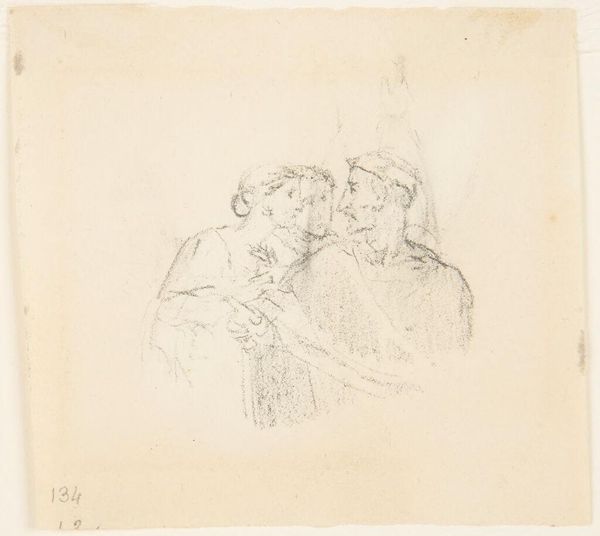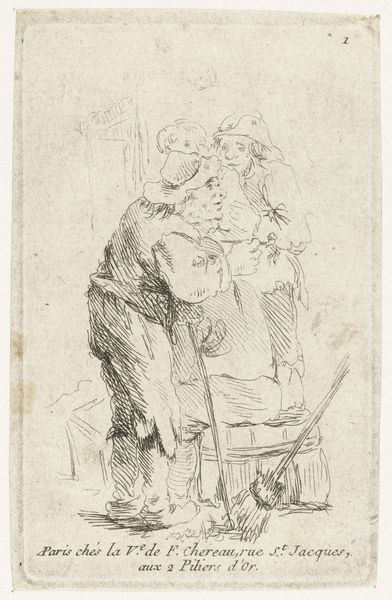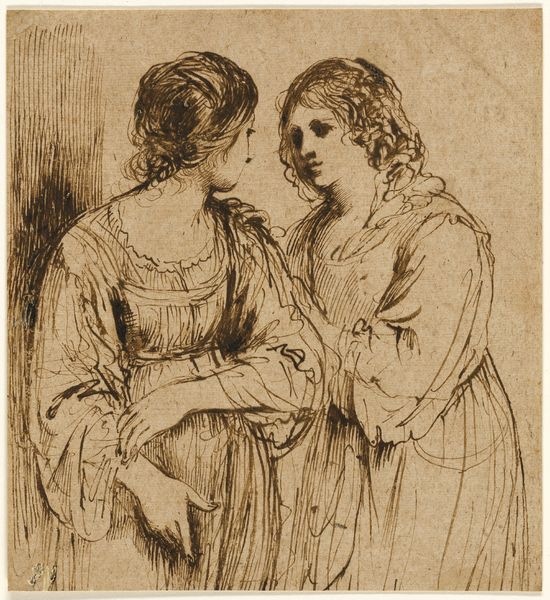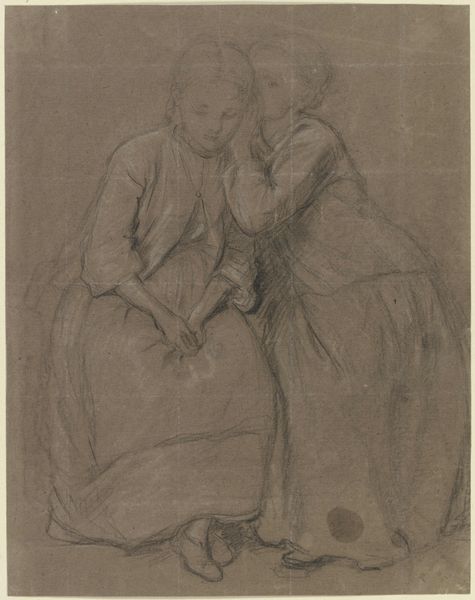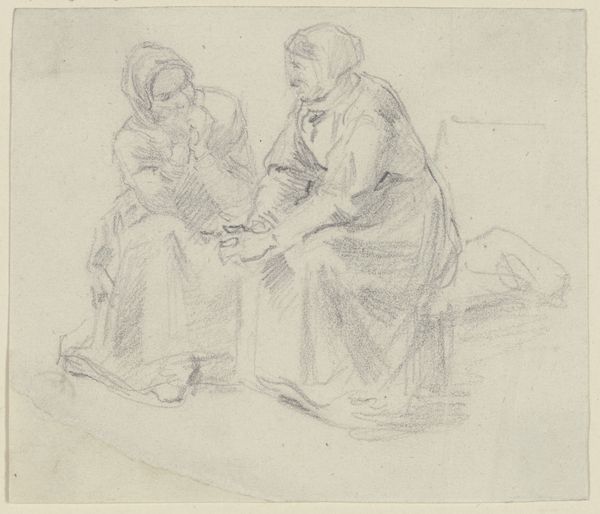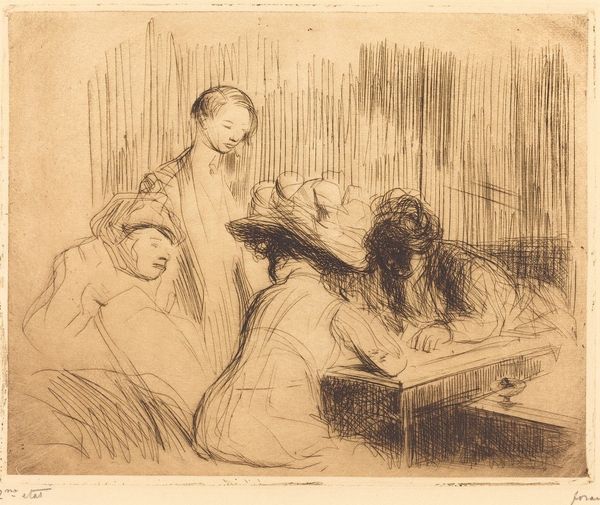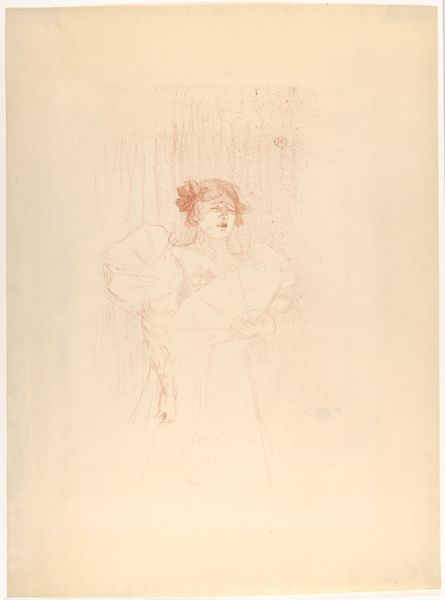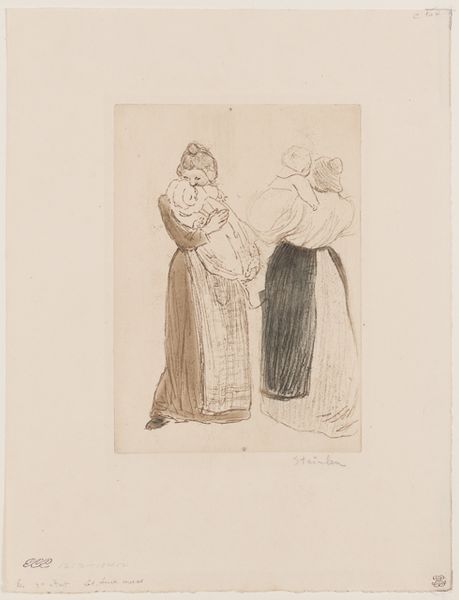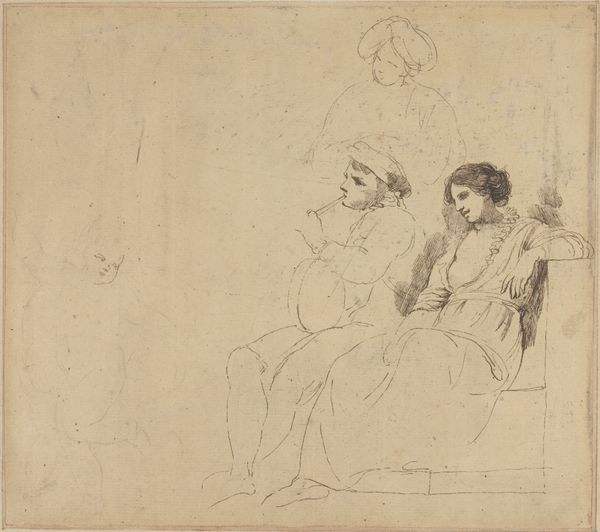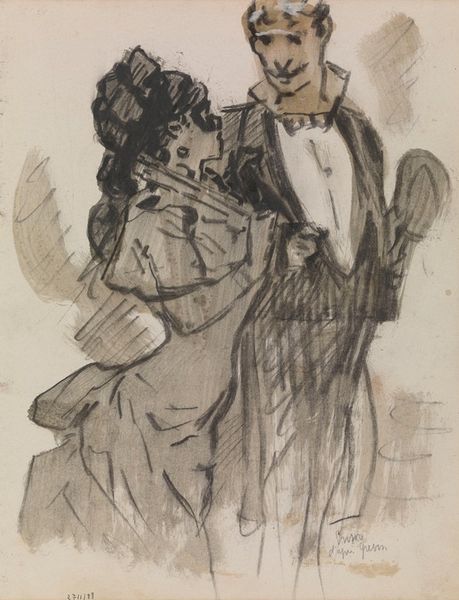
Studie til to af de sladrende madammer på maleriet af "Barselsstuen" 1845
0:00
0:00
drawing, pencil
#
portrait
#
drawing
#
imaginative character sketch
#
toned paper
#
light pencil work
#
pencil sketch
#
personal sketchbook
#
ink drawing experimentation
#
pencil
#
sketchbook drawing
#
pencil work
#
genre-painting
#
storyboard and sketchbook work
#
sketchbook art
#
realism
Dimensions: 302 mm (height) x 261 mm (width) (bladmaal)
Curator: We’re looking at a drawing by Wilhelm Marstrand, dating from 1845. It’s called "Studie til to af de sladrende madammer på maleriet af 'Barselsstuen'", which translates to "Study for two of the gossiping women in the painting of 'The lying-in room'." Editor: It’s a quick sketch, isn’t it? Almost feels like a fleeting thought captured on paper. I am struck by how the light pencil work captures the softness of the figures, almost as if we're witnessing a private moment. Curator: Indeed. This sketch offers an interesting glimpse into 19th-century Danish society and gender roles. You see two women, heads together, sharing what I imagine is some juicy gossip. Editor: Note how the lines almost vibrate with energy, creating a dynamic contrast with the static composition. Curator: I think we see here an implicit commentary on the social constraints placed on women, confined to domestic spaces, their power limited to the realm of whispers and secrets. Gossip, in this context, becomes a form of subversive communication, a way to negotiate their reality. Editor: Subversive, yes, but also intimate. Notice the detailed attention Marstrand pays to the women’s expressions and attire, particularly how the fabric drapes and folds. It feels almost classical in its approach to form, yet rendered with immediacy. Curator: Considering that it is a study for a larger painting, I think Marstrand is meticulously mapping not just their physical appearance, but also their characters. One can imagine how the facial expressions, when transferred onto the final painting, magnify the theme of female bonds and social discourse. Editor: It speaks volumes with so little. Perhaps it’s the restraint that amplifies its message. The formal simplicity encourages you to lean in closer, just as the figures themselves do. Curator: In looking at this preliminary study, we confront the subtle yet crucial ways in which gendered communication has historically functioned. It prompts us to contemplate whether such power dynamics still exist, albeit in different forms. Editor: What began as a formal examination became an interesting discussion of its narrative, and I am leaving this sketch with so much more to think about than initially anticipated.
Comments
No comments
Be the first to comment and join the conversation on the ultimate creative platform.
